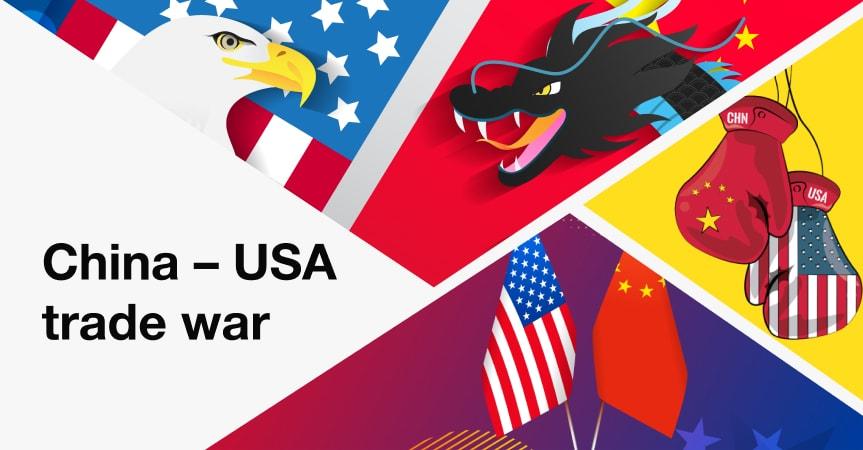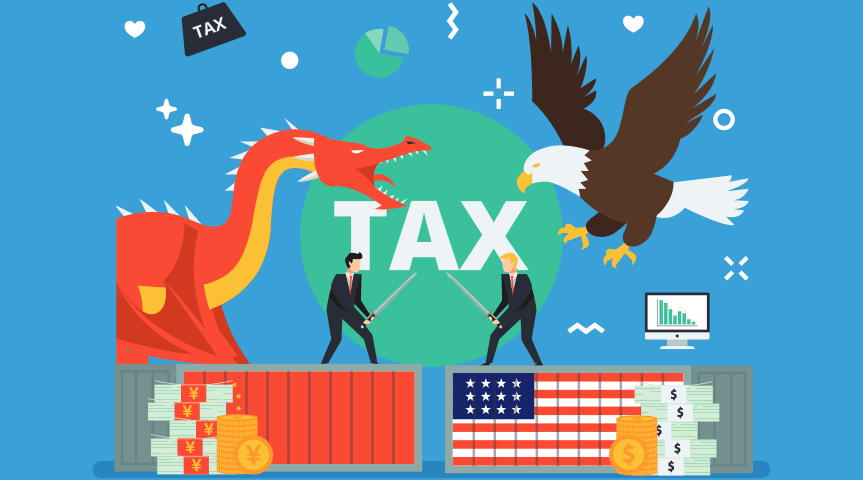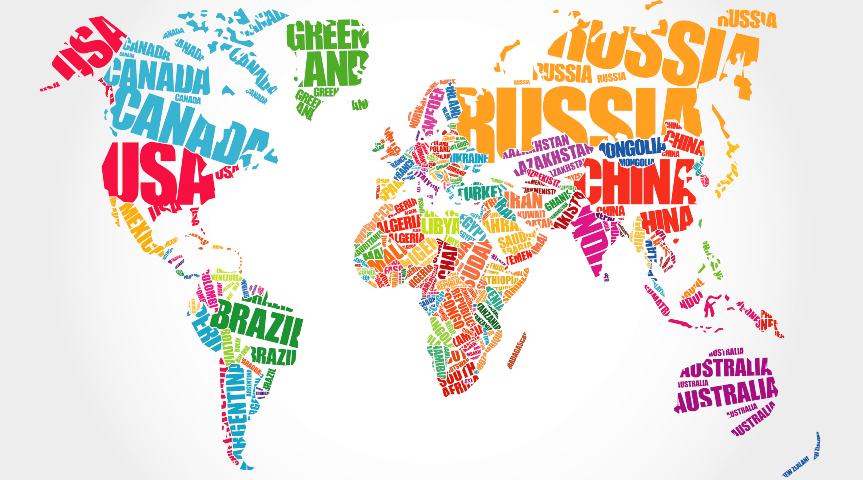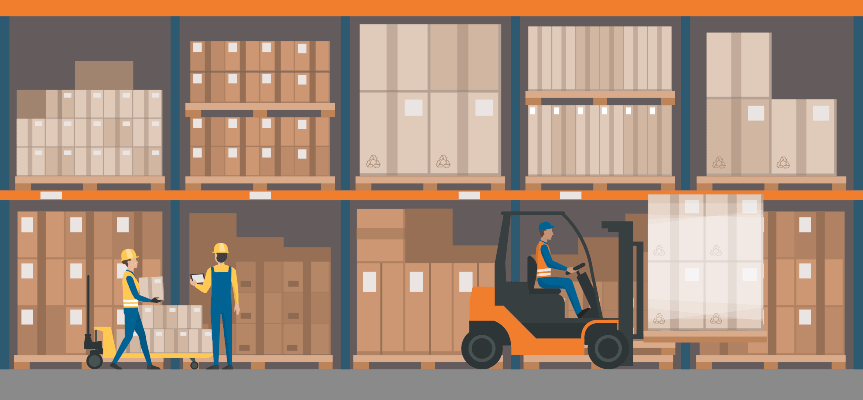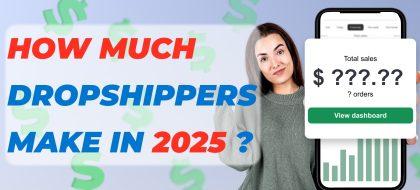US And China Trade War: Is Your Dropshipping Business Safe?
If you’re dropshipping, most certainly, you’re sourcing your products from China. And if your target country is the USA, you’re really interested to know how the current US and China trade war can affect your business. Let’s look into this issue together!
Disclaimer: this article does not provide legal advice and serves informational purposes only. Last update: November 21, 2019.
US & China trade war summary
In January 2018, the United States president Donald Trump announced the introduction of tariffs on solar panels and washing machines imported from China to the USA. These were the first product types to become influenced by the trade war between these two countries. Steel, aluminum, aircraft parts, satellites, and many others have followed…
Why did this happen and what is going on?
Trump administration wants the US to be less dependent on imports. The logic behind this decision is simple: why buy products from abroad if the local citizens can manufacture them by their own effort instead?
Ideally, this measure should lead to a decrease of the unemployment rate. Thanks to job creation, more people will get the chance to improve their living conditions, and it will lead to the United States’ economic growth.
But what about the global economy and international trade?
To encourage the USA enterprises and end users to buy locally made items, the US government introduced the import tariffs we’ve mentioned above.
Now, if someone wants to send some specific kinds of products from China to the USA, this person or company must pay a high tax fee.
Of course, this hurts the profits of Chinese manufacturers, and makes them take their own export-related measures as a response. That’s why this whole trade war situation keeps troubling the trade community worldwide. And surely, dropshipping store owners are worried, too!
Currently, China and the USA are on their way to trade negotiations. But, as this issue still remains unresolved, let’s see how it can influence dropshipping business owners – and what you can do to reduce the negative impact.
To do this, we’d love to ask you 3 simple questions – see them below!
#1 thing to consider: what is your target country?
If you’re not dropshipping to the USA, generally, you have nothing to worry about.
Yes, chances are, Chinese suppliers will increase the prices of all the products they’re manufacturing to compensate for the new extra costs. But here’s the thing: as a result, the prices of items sold in regular brick-and-mortar stores will go up, too!
And this will be happening all over the world because China is the largest exporter worldwide. Its leading trading partners (apart from the USA) are the European Union and Southeast Asean countries.
Massively exporting processing machines and their components, clothes, clothing accessories, mobile phones, textile, and integrated circuits, China provides these countries with countless consumer goods. With no alternatives, the buyers will have to adapt to the new normal.
But guess what? Your store can become the desired alternative for them!
Yes, definitely, you will set a price markup to get your dropshipping profits. But most likely, your marked-up price will still be lower than the price asked in offline shops. The reason for this is simple: you won’t have to compensate for employees’ salary or warehouses’ rent. Therefore, your final product price can turn out to be more appealing to the buyers.
So, even if AliExpress suppliers decide to level up their product prices, it won’t necessarily mean the end of your dropshipping career. You will still be able to stay highly competitive if you pay enough attention to your store branding, product choice, and customer service quality.
Okay, this point if valid if you’re not dropshipping to the USA. But what if you are?
Well, here’s another question for you to answer!
#2 thing to consider: where do your suppliers stock their products?
As we have explained it before, AliExpress sellers don’t always keep their items in Chinese warehouses.
Quite commonly, they choose locations somewhere in the EU or even in the United States!
Of course, to deliver their items to the US warehouses, Chinese manufacturers still need to get them through the local customs, so this option is not really helpful.
But what about the EU warehouses? Do the US impose tariffs on items imported from Europe, too?
As of November, 2019, US tariffs on imported EU goods are mostly applied to agricultural products, machinery, and some lifestyle items. You can view the whole list here.
Look at these products very carefully. It’s not really likely that you’re dropshipping pork sausages or aircrafts, right? So, it would seem that the extra tariffs on the imported products of the EU origin have nothing to do with your business. Therefore, you can safely fill your dropshipping store with the products that can be shipped from Spain or Germany or elsewhere, and that’s it!
However, the list includes more ‘general’ types of products, too. Its means that some specific consumer goods imported from Europe are subject to the new US tariffs. For example, there are books and posters, cameras’ lenses, pneumatic hand tools, clothes and home textiles made of specific materials. And this brings us to the following question…
#3 thing to consider: what does your store sell?
As we have already figured it out, only a limited range of products suitable for dropshipping is subject to extra taxation when shipped from the EU to the US.
When it comes to imports from China, however, the list gets much longer. As of November, 2019, there are 4 documents featuring these products. You can view them on the official website of the Office of the United States Trade Representative:
-
List 1 (starts from Page 28719)
This list mostly features heavy industrial, electronic, agricultural, transportation, and medic machinery, as well as its spare parts and accessories. Also, there are chemicals, raw materials, and railroad vehicles.
As you can see, none of these things are the products you would sell through your dropshipping store. These are highly specific items and materials of industrial use, and they simply aren’t offered on AliExpress. So, you shouldn’t be concerned about this particular list.
-
List 2 (starts from Page 40828)
This list includes petroleum products, polymers, and items of industrial use made from them. Also, there are agricultural machines, AC/DC motors, electrical apparatus, railway/tramway vehicles, and industrial measuring instruments.
Again, these aren’t the products you would dropship, right?
-
List 3 (starts from Page 1)
This list starts with food products (meat, fish, seafood, eggs, butter, honey, vegetables, fruits, nuts, mushrooms, berries, grains, oils, etc.). Plus, there are tobacco, stones and minerals, gases, acids, rubbers, various industrial chemicals, natural leathers, wood, fibers, precious metals, etc.
None of these products, again, seems to be a good fit for a dropshipping store, which gives entrepreneurs no reason to worry about their business future. However, as the list continues, you can find much more products there – and that’s where you need to get very attentive.
To be more specific, there are:
- Dyes, paints, inks, etc. (including the ones for artists’ and students’ use)
- Perfumes and toilet waters
- Makeup and hair products
- Bath salts and soaps
- Photographic films and plates
- Pesticides, herbicides, disinfectants
- Wall or ceiling coverings made of plastic
- Plastic or rubber boxes, bags, bottles, etc.
- Plastic or rubber rainwear, apparel and clothing accessories
- Dogs leashes, collars, harnesses, etc.
- Suitcases, luggage bags, travel bags, sports bags, handbags
- Gloves, mittens, and clothing accessories of leather and composite leather
- Wooden boxes and cases
- Mats and coverings made of cork and bamboo
- Bags and baskets of bamboo, rattan, palm leaf, and other vegetable materials
- Products made of paper and paperboard
- Yarn and woven fabrics of wool, silk, flax, cotton, and synthetic fibers
- Synthetic sewing thread and yarn
- Nets and ropes
- Floor coverings, carpets, and hand-woven rugs and tapestries
- Terry, gauze, and tulle fabrics
- Lace, ribbons, labels, braids, embroideries
- Headgear
- Ceramic pots, jars, etc.
- Glass containers and mirrors
- Glass beads, imitation pearls and stones
- Iron or steel bolts, screws, rivets, fittings, etc.
- Microphones, headphones, speakers, etc.
- Video monitors and projectors
- Bamboo and rattan furniture
- Mattresses
- Chandeliers, electric lamps and their parts
- Buttons and slide fasteners
- Monopods, bipods, and tripods
As you can see, these are consumer products of daily use. Many of them are popular among dropshipping business owners, which is why they are quite likely to get added to their stores.
What does it mean to you? Well, we will discuss it further – and now, let’s take a look at the last (as for now) legal document describing the specifics of product import from China to the US.
-
List 4 (starts from Page 43330)
This list features livestock, birds, insects, products of animal origin, plants, flower bulbs, tea and coffee, vegetables, spices, nuts, oils and fats, cocoa and chocolate, food mixes, syrups, sauces, ice cream, alcoholic beverages, weaponry, etc.
Of course, these are the products that aren’t dropshipped from AliExpress, so you don’t even need to pay attention to them. However, as the list goes on, you can find the following items there:
- Plates, cups, bowls, etc. of plastic
- Household articles and toilet articles of plastic
- Pacifiers
- Wooden frames for mirrors, pictures, etc.
- Wooden tableware and kitchenware
- Wallpaper
- Bedsheets and household, sanitary, or hospital articles of paper and cellulose
- Printed maps and globes
- Printed postcards and calendars
- Outer garments for children and adults
- Men’s and boys’ knitted or crocheted shirts, suits, jackets and blazers, trousers, breeches, shorts, underwear, nightwear
- Women’s and girls’ knitted or crocheted blouses and shirts, suits, jackets, blazers, dresses, skirts, trousers, breeches, shorts, underwear, nightwear
- T-shirts, sweaters, pullovers, track suits, swimwear, hosiery, gloves, mittens, scarves, ties
- Babies’ clothing
- Bed, table, toilet, and kitchen linen
- Sacks and bags
- Waterproof and sports footwear, sports accessories
- Artificial flowers
- Stemware and glassware
- Metal kitchenware
- Sunglasses
- Wrist watches, alarm clocks, wall clocks, their parts and accessories
- Pillows and cushions
- Pens, fountain pens, markers, etc., and their parts
- Pencils, crayons, pastels, drawing charcoal, etc.
- Sanitary towels, napkins, and garments
Quite commonly, the products of these types are sold through dropshipping stores. Does it put your dropshipping business at risk? Let’s review your options.
Keeping your business safe during the US and China trade war: your action plan
Okay, as we have just figured it out, there are 2 general scenarios:
-
You aren’t targeting the United States at all
In this case, there’s nothing you need to worry about. Keep working as usual, and think of the ways to strengthen your brand. It won’t do you any harm to establish your store as a well-known and reputed marketplace anyway 🙂
If Chinese sellers start increasing all of their products’ prices as once, this brand will be a huge competitive advantage for your business. And if they don’t…well, you’ll enjoy the marketing benefits of a strong brand which is totally great!
-
You are targeting the US buyers
In this case, the first thing you need to do is review your product offer and compare it to the List 3 and List 4 that describe consumer goods taxed upon import.
If some of your products are exactly the items that can’t be imported from China to the US without an extra tax payment, contact your AliExpress suppliers. Ask them about their recent experience of shipping these products to the US – did they face any troubles? Did they or their buyers need to pay an extra fee on customs?
If that’s really so, you can:
- Continue dropshipping these items and pay the necessary tax if it’s actually collected (please, ask your suppliers to explain this exact procedure to you)
- Look for these products’ alternatives that can be shipped from the EU and replace your current products with these options
- Shift your store focus and concentrate on the items that aren’t liable to the import tax
- Change your target market and focus on any other buyers’ audience beyond the USA
With due effort, any of these 4 options should work just fine for you!
And if you’ve been thinking about making some strategic changes to your dropshipping business, it’s a great time to embrace this opportunity. Feel free to share your experience of dealing with the impact of the US and China trade war (if you have any) in the comments section below!
